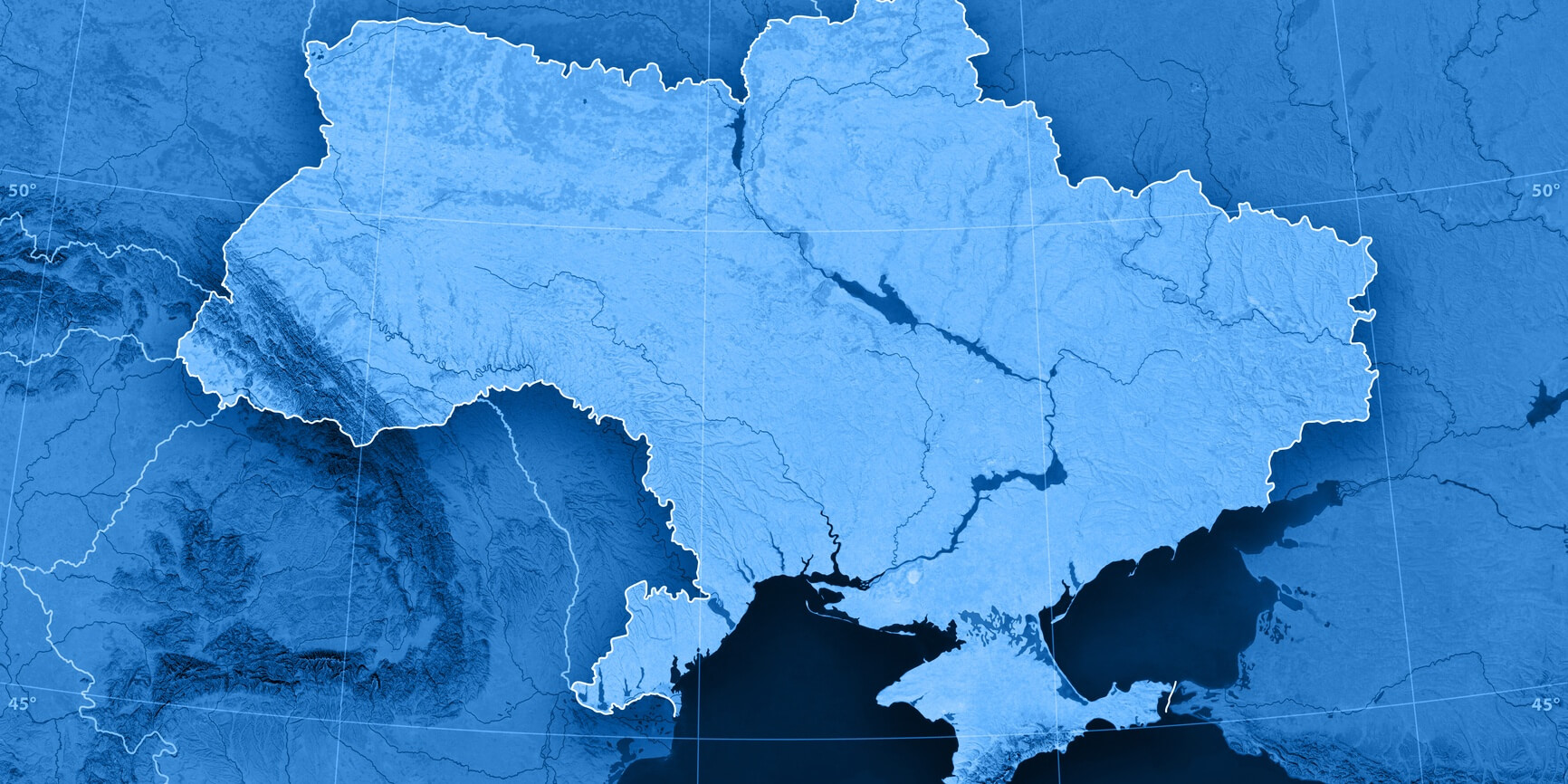
The ISC, our Members and the broader scientific community continue to support collaborative efforts for scientists and science displaced due to the war in Ukraine.
Over the past two years, the ISC has convened crisis discussions and delivered on actions resulting from broad international scientific community support to build the capacity of scientists and researchers to continue their efforts in their fields of expertise.
While the war in Ukraine contineus, the International Science Council stands faithful and confident to its mandate to provide a global voice for science. This mission, coupled with the imperative for science to act freely and independently from any influence and manipulation, will continue to ensure the contribution of science to peaceful dialogue and diplomacy at a time of conflicts and crises.
Through the ISC’s Committee for Freedom and Responsibility in Science, a number of actions have taken place, including the convening of stakeholders across the globe, and actions through the Council’s Science in Exile project, culminating in a declaration for organizations to sign.
These actions and sentiments are echoed in Nature’s editorial, titled “Rebuilding Ukrainian science can’t wait — here’s how to start.”
Salvatore Aricò, ISC CEO
One year on from Russia’s invasion, we’re urging the international research community to prioritize support for not only individual researchers and their teams, but also Ukraine’s science system as a whole.
Nature Editorial, 22 February 2023
This is exactly the type of action the ISC and its partners are putting into practice with actionable pathways being set to build capacity for Ukraine’s science system.
Conferences on the Ukraine crisis, 2022 and 2023
The ISC, along with its partners, has organized two conferences on the crisis.
In 2022 the ISC and partners – All European Academies (ALLEA), Kristiania University College, and Science for Ukraine – co-hosted the ‘Conference on the Ukraine Crisis: Responses from the European Higher Education and Research Sectors’.
The report of the conference, published in August 2022, included important lessons and recommendations on how to support the science sector in Ukraine and in other countries affected by conflict and disaster.
The second conference on the Ukraine crisis, held in March 2023, one year after the start of the war, engaged with the insights and recommendations that emerged from the previous conference held in June 2022.
Read the reports

The ISC is collecting various information from the international scientific community on the war in Ukraine on this page. To submit, please contact [email protected]
The U.S. National Academy of Sciences and the Polish Academy of Sciences have launched a new long-term grant program to support research by Ukrainian scientists. The program was established with the aim of sustaining and eventually rebuilding a healthy research system in Ukraine despite the ongoing war.
Webinar and launch
A call for action to support at-risk, displaced and refugee scientists: Science in Exile declaration launch
Research4Life in Ukraine:
Calls for assistance
◾ National Research Foundation of Ukraine (NRFU) has launched a fundraising campaign for grant support for researchers
In early March 2022, 100% of the 2022 grant budget allocated to NRFU was redirected to cover the defense needs. To compensate for these state budget reductions, the NRFU has launched a systematic fundraising strategy asking for contributions. Every contribution, no matter how small or large, will enable the NRFU to continue to deliver direct support to meritorious researchers working in Ukraine, to continue its work to establish world-class competitive research grantmaking in Ukraine’s research system, and to integrate Ukraine into the global research community. Learn more
◾ Council of Young Scientists under the Ministry of Education and Science of Ukraine:
A recent paper has been published by the young science group requesting calls for assistance.
Offers of assistance
Statements from ISC Members
Statements from the international scientific community and ISC Affiliated Bodies
Statements and resources from intergovernmental organizations
ISC resources
Advisory notes and statements can be found in the Committee for Freedom and Responsibility in Science repository:
Recently, the northern region of Vietnam was devastated by Typhoon Yagi, locally known as typhoon 4th, one of the most severe natural disasters the area has experienced in the last 60 years. The typhoon not only caused extensive damage to infrastructure, but also tragically claimed lives and destroyed the livelihoods of many local communities, especially those in remote, mountainous and vulnerable areas. The scale of destruction was beyond what local authorities could manage, particularly affecting ethnic minority groups who already face limited resources and infrastructure. This disaster highlights a painful, but essential truth: the increasing impact of climate change is undeniable, and no single country can address its consequences in isolation.
The case of Typhoon Yagi is a powerful reminder that climate change is a global issue. Its effects do not respect borders, and no nation, no matter how developed, can single-handedly mitigate the growing frequency and intensity of climate-related disasters. The recent typhoon serves as a stark warning of the urgent need for collective action from the international community. Aid and relief efforts following Typhoon Yagi have been crucial, with international support, including from countries like Australia, playing a significant role in the recovery efforts.
However, while global cooperation is critical, my experience and reflections on this disaster have brought forward a crucial insight: as much as we need international engagement, we must also focus on empowering local communities to protect themselves. When disasters strike, local communities are always the first responders, and their ability to act quickly and effectively can mean the difference between life and death.
The aftermath of Typhoon Yagi underscores the importance of building local resilience. In many parts of Vietnam, particularly in ethnic minority and mountainous communities, the ability to respond to natural disasters is limited. These communities are often both geographically and socially isolated, making it difficult for external aid to reach them quickly. Furthermore, they are highly reliant on traditional livelihoods, such as agriculture, which are incredibly vulnerable to climate-related events. This combination of isolation, economic dependence on the land, and limited infrastructure makes these groups particularly susceptible to the impacts of typhoons, floods, and other climate-related disasters.
Empowering these vulnerable communities is essential—not only in terms of providing immediate relief but also in enabling them to rebuild and recover in a sustainable way. Local knowledge, traditions, and practices are invaluable, but they must be combined with modern disaster preparedness strategies to create resilient, self-sufficient communities that can respond effectively before external aid arrives.
Resilience is not just about physical infrastructure; it’s also about social and economic systems. For communities like those in northern Vietnam, building resilience means developing early warning systems, creating better communication networks, and training locals in disaster preparedness and response. It also means ensuring that local governments and organizations have the resources and knowledge they need to support their people. Strengthening these systems can reduce the immediate impact of a disaster, saving lives and preserving livelihoods.
However, it is essential to recognize that recovery and development must be approached with thoughtful consideration of local culture, traditions, and the specific challenges posed by climate change. Restoring livelihoods and rebuilding infrastructure, such as roads and bridges, are vital steps, but the process cannot be limited to simply erecting new facilities or resettling communities. Any efforts to rebuild must take into account the cultural and historical contexts of the affected areas. Ethnic minority communities, for example, have deep-rooted traditions tied to the land, and any development must respect and integrate these traditions to ensure that the solutions are sustainable and meaningful.
The rebuilding process must involve local voices, ensuring that communities have a say in how their environments are restored. Imposing external solutions without considering the long-standing relationships between people and their land risks alienating those most affected. Moreover, the impacts of climate change, such as altered weather patterns and natural disasters, require that new infrastructure be designed with resilience in mind. This means adapting traditional practices where necessary while preserving cultural integrity.
Typhoon Yagi has been a harsh reminder of the pressing need for global cooperation in combating climate change. International aid is indispensable in helping countries recover from disasters of this magnitude, and the outpouring of support for Vietnam in the wake of the typhoon has been both encouraging and necessary. However, international collaboration should not stop at emergency relief. It must extend to building long-term resilience in the most vulnerable communities.
This is where the intersection of global support and local empowerment becomes critical. While global frameworks and resources are necessary to address the root causes of climate change and provide immediate disaster relief, local communities need to be equipped with the tools, knowledge, and resources to protect themselves. The more vulnerable the community—such as ethnic minority groups and those living in remote, mountainous regions—the greater the need for empowerment.
The devastation caused by Typhoon Yagi is a sobering example of the challenges posed by climate change. As the frequency and severity of climate-related disasters continue to increase, so does the urgency of our response. The lessons learned from this disaster reinforce the importance of empowering local communities, especially the most vulnerable, to become resilient and self-sufficient in the face of these challenges.
However, it is equally important to recognize that development and rebuilding efforts must be approached with careful consideration of local traditions and the long-term impacts of climate change. Rebuilding is not just about constructing new facilities but about creating solutions that respect cultural values and address the vulnerabilities exacerbated by climate change.
By combining international cooperation with thoughtful, culturally sensitive local empowerment, we can better prepare for the inevitable impacts of climate change and create a more resilient future for all. Only through this dual approach can we hope to protect vulnerable communities and ensure that they are not just surviving the next disaster, but thriving in the face of it.

A guide to anticipation: Tools and methods of horizon scanning and foresight
The International Science Council, in partnership with the United Nations Environment Programme (UNEP), has conducted a comprehensive review of existing tools and methods of horizon scanning and foresight, and has convened a reflection on the evolution of foresight.

United in Science: Reboot climate action
The ISC has contributed to a new report by the World Meteorological Organization on the urgent need for climate action that must be rebooted at September’s United Nations Summit of the Future.
Photo: Lang Nu (Nu Village) traditional houses were almost completely destroyed by Typhoon Yagi (Credit: Vnexpress.net)
Disclaimer
The information, opinions and recommendations presented in our guest blogs are those of the individual contributors, and do not necessarily reflect the values and beliefs of the International Science Council